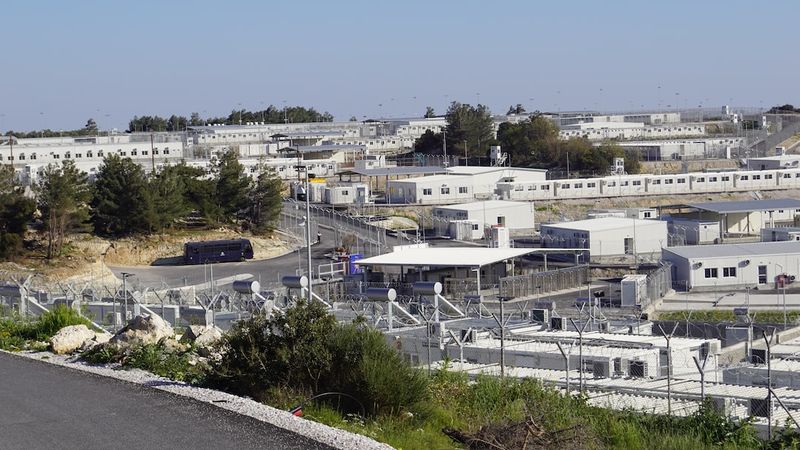Table of Contents
Burundi: Free Journalist Held for a Year
Joint Statement by Four Human Rights, Press Freedom Organizations
August 29, 2023 | New York Times
By
Introduction
Journalist Floriane Irangabiye has been arbitrarily detained in Burundi for a year, serving a 10-year prison sentence for criticizing the government. Amnesty International, the Burundi Human Rights Initiative, the Committee to Protect Journalists, and Human Rights Watch have joined forces to demand her immediate and unconditional release, as well as the quashing of her conviction. Irangabiye’s imprisonment is a flagrant violation of her rights to freedom of expression and a fair trial. This report examines the case, the implications for press freedom, the state of human rights in Burundi, and the international community’s response to such violations.
Background
Floriane Irangabiye, a radio journalist for Radio Igicaniro, an online platform in exile, was arrested on August 30, 2022, after criticizing the Burundian government. She was subsequently convicted by the Mukaza High Court in Bujumbura on January 2, 2023, for endangering the integrity of the national territory. Irangabiye’s trial was deeply flawed, lacking credible evidence and violating her right to freedom of expression.
Flawed Trial and Conviction
The court’s conviction was based on a vaguely defined crime that could be easily misused to persecute individuals for criticism and commentary. Amnesty International, the Burundi Human Rights Initiative, the Committee to Protect Journalists, and Human Rights Watch argue that Irangabiye’s conviction is punishment for her peaceful exercise of the right to freedom of expression, violating the African Charter on Human and Peoples’ Rights and the International Covenant on Civil and Political Rights.
Moreover, Irangabiye’s prosecution was marred by violations of procedural rights. The initial interrogation by the National Intelligence Service violated the Burundian Criminal Procedure Code, as it was conducted without a lawyer present and without informing Irangabiye of her right to remain silent. Although the Court of Appeal acknowledged this violation, it failed to nullify the entire procedure.
Health Concerns and Lack of Medical Care
Irangabiye’s detention in Muyinga Prison has taken a toll on her health, exacerbated by a preexisting medical condition. Her lawyers have filed a request for her transfer back to Bujumbura, where she could receive necessary medical care and be closer to her family. However, the request remains unanswered. The failure to provide Irangabiye with adequate medical care not only amounts to cruelty but also highlights the government’s ruthlessness in silencing critics.
The Crackdown on Government Critics
Floriane Irangabiye’s case is indicative of a wider pattern of arbitrary detention and prosecution of government critics and opponents in Burundi. President Évariste Ndayishimiye and his government must be held accountable for these human rights violations. Their refusal to address these issues undermines their promises of reform and tarnishes the country’s international reputation.
Role of International Community
The international community must actively engage in addressing the human rights situation in Burundi. President Ndayishimiye’s silence on Irangabiye’s imprisonment speaks volumes about his commitment to freedom of expression and justice. Diplomatic pressure, sanctions, and targeted measures should be considered to push for Irangabiye’s release and to signal that human rights violations will not be tolerated.
The Importance of Press Freedom
This case highlights the fundamental importance of press freedom in any democratic society. Journalists play a crucial role in holding governments accountable and providing information to the public. When journalists are targeted, silenced, and imprisoned, it undermines the very essence of a free and transparent society.
Freedom of expression is a cornerstone of democracy, and governments have a duty to protect and promote it. Silencing dissenting voices and suppressing the media not only stifles public discourse but also creates an environment of fear and self-censorship. It is imperative that governments and societies prioritize the protection of journalists and press freedom, allowing for diverse opinions and robust public debate.
Conclusion: Call for Reform
The case of journalist Floriane Irangabiye serves as a stark reminder of the challenges facing press freedom in Burundi. The government’s crackdown on critics and dissenting voices must cease, and substantive reforms are needed to restore the independence of the justice system. Laws that criminalize freedom of expression should be repealed.
The international community, including the United Nations and regional organizations, should exert pressure on the Burundian government to release Irangabiye and uphold its human rights commitments. The world cannot remain silent in the face of such grave violations. It is time for President Ndayishimiye to demonstrate true leadership by calling for Irangabiye’s immediate release and ensuring that human rights are respected and protected in Burundi.

<< photo by Torbjörn Sassersson @ NewsVoice.se >>
The image is for illustrative purposes only and does not depict the actual situation.
You might want to read !
- The Persecution of Press Freedom in Burundi: One Year Too Long
- Silencing the Truth: Kyrgyzstan’s Assault on Press Freedom
- Examining the Shadows: The Urgency of Investigating Zimbabwe’s Vanished Activist
- Innocence Lost: Examining the Violent Persecution of Christians in Pakistan
- Is Saudi Arabia’s Use of the Death Penalty for Tweets a Justifiable Response to Cyber Dissent?
- Bangladesh’s Detention of University Student Khadijatul Kubra: A Violation of Human Rights
- Russian Court Upholds Harsh Sentence Against Ukrainian Human Rights Defender Maksym Butkevych
- Impending Human Rights Crisis: Evaluating the UN’s Priorities in Afghanistan
- Ethiopia’s Oromo Opposition Figures: A Case of Judiciary Defiance?